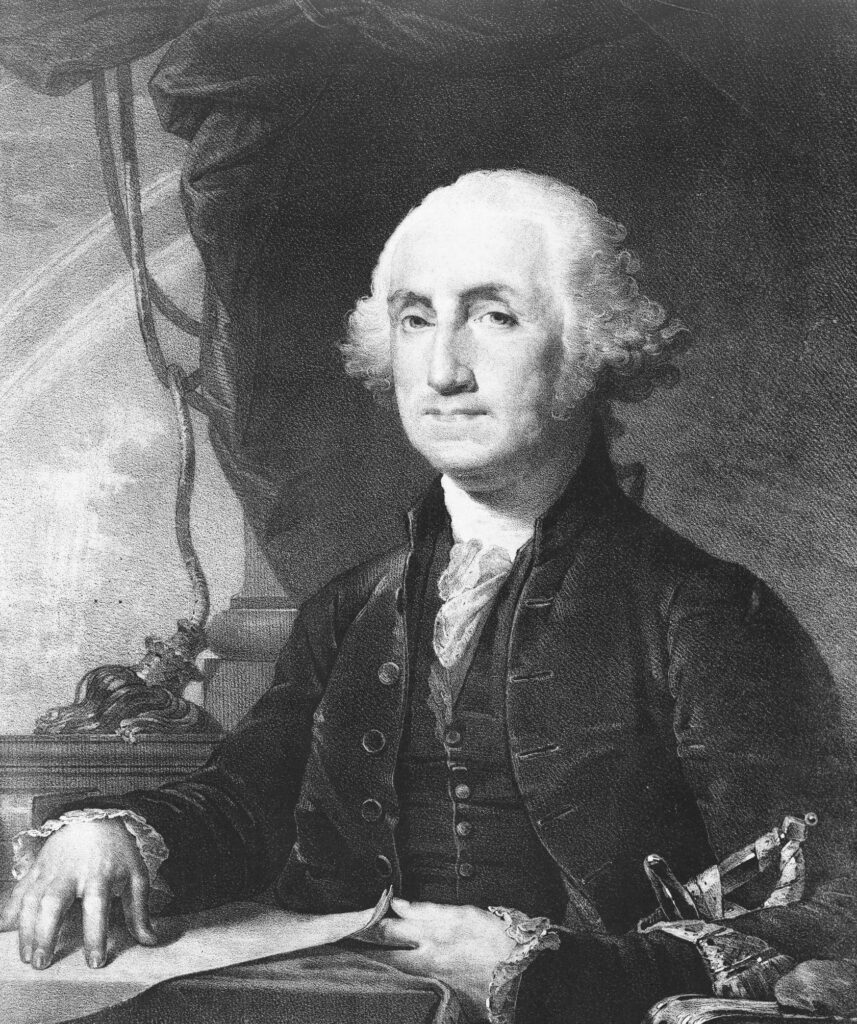George Washington
George Washington, known as the “Father of His Country,” played a crucial role in forming the United States. As commander-in-chief of the Continental Army during the American Revolution and the first U.S. president, his leadership helped secure the nation’s independence. Washington’s contributions to the U.S. Constitution, his rejection of monarchical power, and his commitment to liberty and democracy have made him one of the most important figures in American history.
Early Life and Background
George Washington was born on February 22, 1732, in Westmoreland County, Virginia, into a family of moderately prosperous planters. Washington spent his early years in colonial Virginia and was largely self-educated, though he learned many practical skills such as surveying and farming. In his late teens, he became a surveyor, and by his early twenties, he had begun his military career.
Washington’s Early Military Career
Washington’s first military experience came during the French and Indian War (1754-1763). This conflict was between Britain and France over North American territories. As a young officer, Washington gained valuable leadership experience despite facing several setbacks. His actions during the war caught the attention of colonial leaders. This early experience laid the groundwork for his future military command.
Leadership During the American Revolution
Washington’s most significant military role came during the American Revolutionary War (1775-1783). In 1775, the Continental Congress appointed him commander-in-chief of the Continental Army. He led a poorly equipped group of colonial soldiers against the powerful British forces. Despite overwhelming odds, Washington showed perseverance and resilience throughout the conflict.
Key moments in his military leadership include:
- Crossing the Delaware River: On Christmas night in 1776, Washington led a surprise attack against the Hessian forces in Trenton, New Jersey. This bold move boosted morale and reinvigorated the revolutionary cause.
- The Winter at Valley Forge: During the harsh winter of 1777-1778, Washington’s leadership held the Continental Army together under dire conditions at Valley Forge. His efforts to improve discipline and morale helped turn the army into a more effective fighting force.
- Victory at Yorktown: In 1781, with French assistance, Washington’s army successfully trapped British General Cornwallis at Yorktown, Virginia, forcing a surrender that effectively ended the war and secured American independence.
Washington and the U.S. Constitution
After the Revolutionary War, Washington retired to his home at Mount Vernon, intending to live a private life. However, the weaknesses of the Articles of Confederation and the need for a stronger central government drew him back into public service. In 1787, he was unanimously elected to preside over the Constitutional Convention in Philadelphia, where the U.S. Constitution was drafted.
Washington’s support for the Constitution was critical in its ratification. His presence lent credibility to the document and reassured Americans that the new government would be based on republican principles rather than the consolidation of power in a single ruler.
Washington as the First President
In 1789, George Washington was unanimously elected as the first president of the United States under the new Constitution. He took office in a precarious time when the young nation was still defining its identity, and he set many important precedents during his two terms in office (1789-1797).
Key achievements of his presidency include:
- Establishing the Executive Branch: Washington helped shape the executive branch by appointing capable leaders to his cabinet, including Thomas Jefferson as Secretary of State and Alexander Hamilton as Secretary of the Treasury. His leadership set the standard for a strong, yet restrained, executive.
- Neutrality in Foreign Affairs: Washington’s Proclamation of Neutrality in 1793 kept the United States out of the conflict between Britain and France, emphasizing the importance of avoiding entanglements in foreign wars.
- Farewell Address: In 1796, Washington voluntarily stepped down after two terms, setting a precedent for the peaceful transfer of power. In his Farewell Address, he warned against political factions and foreign alliances, advice that has remained influential in American political discourse.
Washington’s Legacy
George Washington’s legacy is immense. He is remembered not only for his military victories but also for his commitment to democratic ideals. His decision to step down after two terms set the standard for future presidents and helped establish the principle of peaceful transitions of power. Washington’s leadership during the country’s formative years left an enduring impact on the presidency and the nation’s government.
He also contributed to the creation of the U.S. capital, Washington, D.C., which was named in his honor. Today, his face appears on the U.S. dollar bill and the quarter, and monuments such as the Washington Monument in the nation’s capital commemorate his contributions.
